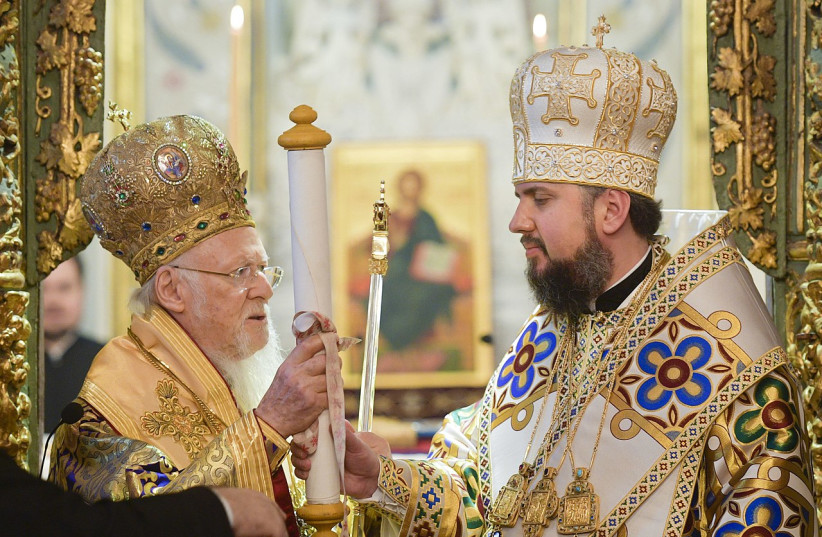The leaders of the independent Orthodox Church of Ukraine called Russian President Vladimir Putin the modern-day anti-Christ who is going against the will and law of God in his ongoing invasion of the besieged county.
Speaking on the BBC's Global News Podcast, Ukrainian Orthodox Church spokesperson and bishop Yevstratiy Zoria slammed Putin as the anti-Christ because everything he does and is doing "is totally against gospel [and] against God's law."
This follows a previous statement made by Metropolitan Epiphanius I of Ukraine on Sunday, saying in an official statement that "the spirit of the anti-Christ operates in the leader of Russia."
He claimed that the "signs" were revealed to indicate this, citing "Pride, devotion to evil, ruthlessness [and] false religiosity."
This "was [Nazi leader Adolf] Hitler during World War II," Epiphanius claimed: "This is what Putin has become today."

The archbishop has also been very vocal in his support for Ukrainian resistance to Russia's invasion.
"This spirit of love and truth, which are on our side, testify that with God's help we will achieve victory. Every hour of resistance to aggression brings us closer to this," he said in his statement.
The statements by Epiphanius and Zoria underline the religious conflict between the Orthodox churches of Russia and Ukraine.
Until 2018, the Ukrainian Orthodox Church was officially part of the Russian Orthodox Church. Indeed, as noted by many surveys, a large majority of Ukrainians are Orthodox Christians.
However, the relationship between Ukraine's and Russia's Orthodox churches changed in 2019 when Bartholomew I of Constantinople, the current ecumenical patriarch and essentially the head of the Orthodox Church, recognized the independence of the Ukraine Orthodox Church.
This does not mean the church is entirely independent and unconnected to Orthodoxy, as that is not how the church works. Rather, it would essentially be equal to the many other Orthodox churches.
The Orthodox Church functions as what is essentially a group of churches where the archbishops do not technically report to anyone higher – a type of church known as autocephaly. The ecumenical patriarch is considered "primus inter pares," meaning "first among equals," but he has no real authority over the other churches.
But the problem lies in how the Russian Orthodox Church claims authority over Ukraine as a whole, and as such, they have been greatly opposed to the establishment and subsequent recognition of Ukraine's Orthodox Church.
Putin himself had condemned the creation of the Ukrainian Orthodox Church, calling it a bid to "to legalize the schismatic communities that exist[ed] in Ukraine under the jurisdiction of Istanbul, which is a gross violation of Orthodox canons" in an interview with Serbian media.
Could this change in the future? According to Epiphanius, that may be possible, with his statement saying that the invasion of Ukraine could be changing the minds of faithful Russians, as well as "many hierarchs, priests, and laity of the Moscow Patriarchate who are already asking themselves about their future, which they do not associate with the discredited Patriarch Kirill."
Kirill himself has, in a statement, called for unity in the Orthodox church, but specifically "our united Orthodox Church represented in Ukraine by the Ukrainian Orthodox Church headed by His Beatitude Onuphry," referring to the head of the Moscow Patriarchate-controlled Ukrainian Orthodox Church.
